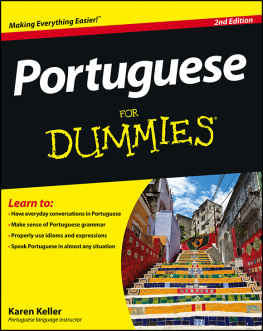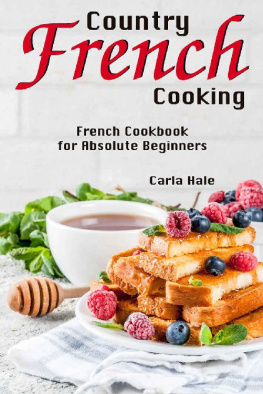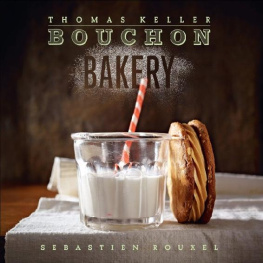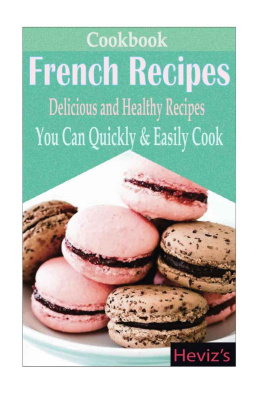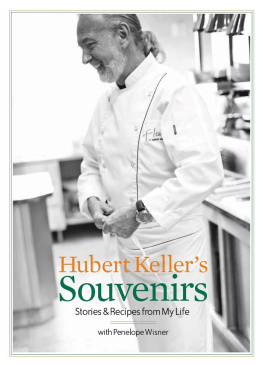Keller - The French Laundry Cookbook
Here you can read online Keller - The French Laundry Cookbook full text of the book (entire story) in english for free. Download pdf and epub, get meaning, cover and reviews about this ebook. year: 2016, publisher: Workman Publishing, genre: Home and family. Description of the work, (preface) as well as reviews are available. Best literature library LitArk.com created for fans of good reading and offers a wide selection of genres:
Romance novel
Science fiction
Adventure
Detective
Science
History
Home and family
Prose
Art
Politics
Computer
Non-fiction
Religion
Business
Children
Humor
Choose a favorite category and find really read worthwhile books. Enjoy immersion in the world of imagination, feel the emotions of the characters or learn something new for yourself, make an fascinating discovery.

- Book:The French Laundry Cookbook
- Author:
- Publisher:Workman Publishing
- Genre:
- Year:2016
- Rating:4 / 5
- Favourites:Add to favourites
- Your mark:
- 80
- 1
- 2
- 3
- 4
- 5
The French Laundry Cookbook: summary, description and annotation
We offer to read an annotation, description, summary or preface (depends on what the author of the book "The French Laundry Cookbook" wrote himself). If you haven't found the necessary information about the book — write in the comments, we will try to find it.
Keller: author's other books
Who wrote The French Laundry Cookbook? Find out the surname, the name of the author of the book and a list of all author's works by series.
The French Laundry Cookbook — read online for free the complete book (whole text) full work
Below is the text of the book, divided by pages. System saving the place of the last page read, allows you to conveniently read the book "The French Laundry Cookbook" online for free, without having to search again every time where you left off. Put a bookmark, and you can go to the page where you finished reading at any time.
Font size:
Interval:
Bookmark:

THE FRENCH LAUNDRY COOKBOOK
THOMAS KELLER
with
Susie Heller and Michael Ruhlman
Photographs by Deborah Jones

To the memory of the mother, Elizabeth Marie
and
for my father, Edward James
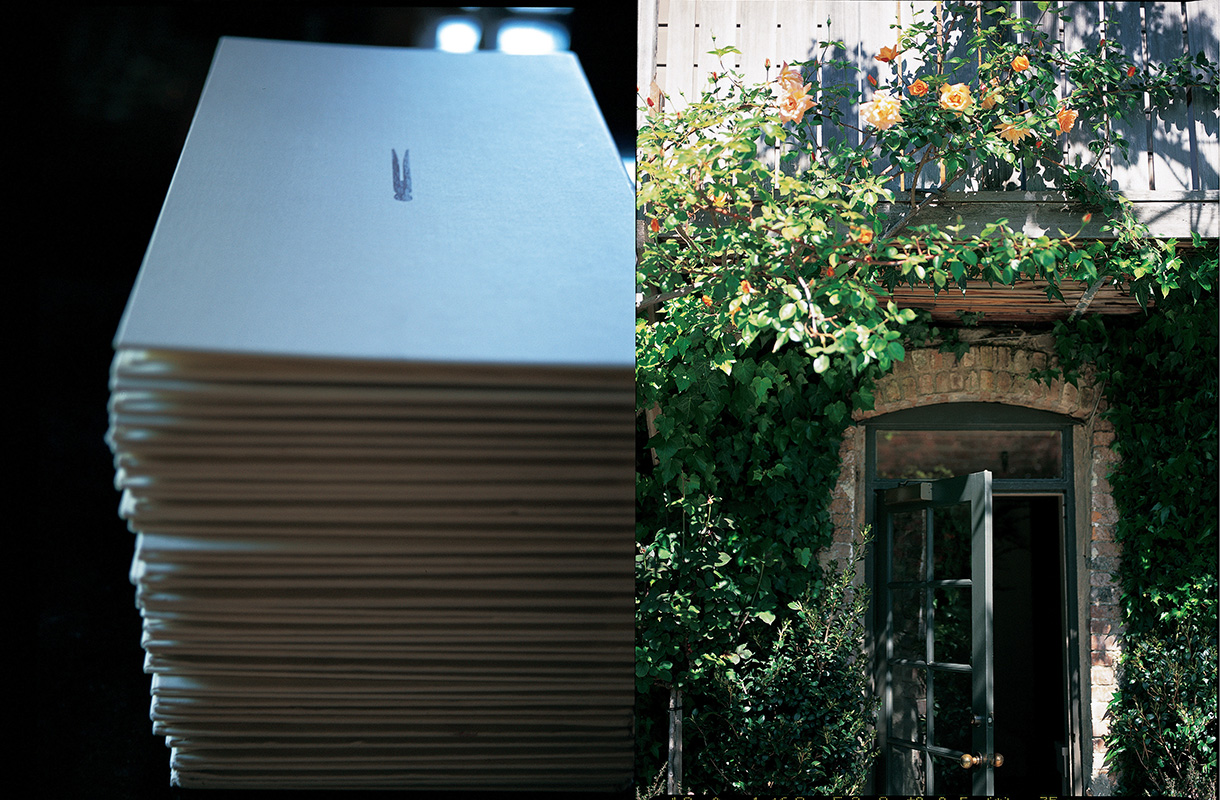
Few people move through their work as a solitary force, and no one in the service business does. As far as Im concerned, my whole career has been a cumulative effort.
My mom, Betty, was and remains the biggest influence, if thats the word, in my life. Long before she put me to work, she taught me how to clean our home. Everything had to shine. That standard of perfect cleanliness was its own gift, given the work Id choose. She was a focused, intense woman, the driving force of the family, and she taught through her own actions. I honestly dont know who Id be if Id been raised by, and had grown up watching, someone other than her.
My brother, Joseph, steered me in the beginning, even before I understood that my mtier would be cooking, and for this I am grateful. He kept me on track when I could have gone in any number of less-productive directions.
Roland Henin was my chef. He hired me as staff-meal cook at the Dunes Club in Rhode Island, in the summer of 1976, when I was not yet twenty-one, and taught me what I needed to know to learn the rest.
During the years between Henin and the French Laundry, there was, among many others to whom Im also grateful, Serge Raoul. He not only hired me in New York, he went on to give me a place to stay in France during my stages, and then, most important, provided the opportunity to establish the restaurant Rakel, which proved to be a transformative time for me.
I would like to thank all my partners; without them there would be no French Laundry.
When we were opening the restaurant, Laura Cunningham knocked on my door and handed me her rsum. She quickly took charge of the front of the house and has become more than a general manager and sommeliershes as much a part of the heart and soul of the restaurant as I am. Her passions, standards, and character, as well as her capacity to express and teach hospitality, have been critical to the restaurants success. For all this, and her ability to work so closely with me, I am more grateful than I can say.
In the kitchen, no one has been more dedicated and loyal, or more critical in shaping the French Laundry from its opening day, than French Laundry pastry chef Stephen Durfee. Sous chefs Eric Ziebold, Gregory Short, and Grant Achatz, who arrived with the opening of the new kitchen, have been important forces in developing the French Laundry into what it is today. They, along with Stephen, logged many hours quantifying and demonstrating recipes for this book. Pat McCarty has been more than the French Laundrys accountantI see her more as the third leg of the front-of-the-house/kitchen/financial tripod that keeps a restaurant standing. I am grateful to her.
There are too many staff to thank individually. All of them make or have made the French Laundry the place that it is, and I thank every one, past staff and present.
For this book, Susie Heller is to be thanked above all. Few know that she and I have been talking about it for twelve years. (It began as a pop-up book!) And it was she who not only wrote and tested all the recipes with her able assistant, Angie Spensieri, but who marshaled the team that made this book: photographer Deborah Jones, with her assistant, Jeri Jones; writer Michael Ruhlman; and graphic designer Cliff Morgan, with his design partner David Hughes. Susie, Deborah, Michael, and Cliff became a part of the restaurant in order to transform its essence into a book. Theyre an extraordinary team; take any one of them away and this would have been a different book entirely.
Susan Lescher brought the book before the right people and found the best possible publisher and editor for this project, Ann Bramson. Im also indebted to the team in New YorkDeborah Weiss Geline, Judith Sutton, Dania Davey, Nancy Murray, and Tricia Boczkowski.
The French chef Fernand Point died the year I was born; in many ways his cookbook Ma Gastronomiea book that conveyed his sense of humor and the totality of a life focused on dininginformed me early on about how a chef might live his passion.
Id like to thank my entire family for their support and also for their understanding, because the life of a chef inevitably leads to areas of neglect in ones life. I am grateful to them.
Finally, Id like to thank my colleagues. Its from you that I draw inspiration, and its your cumulative talent that keeps me striving. Without the daily evidence of your skill and drive and passion, I would be a lesser chef.


When you acknowledge, as you must, that there is no such thing as perfect food, only the idea of it, then the real purpose of striving toward perfection becomes clear: to make people happy. Thats what cooking is all about.

But to give pleasure, you have to take pleasure yourself. For me, its the satisfaction of cooking every day: tourning a carrot, or cutting salmon, or portioning foie grasthe mechanical jobs I do daily, year after year. This is the great challenge: to maintain passion for the everyday routine and the endlessly repeated act, to derive deep gratification from the mundane.
Say, for instance, you intend to make a barigoule, a stew of artichoke hearts braised with carrots and onions, fresh herbs, oil, and wine. You may look at your artichokes and think Look at all those artichokes Ive got to cut and clean. But turning thempulling off the leaves, trimming their stems, scooping out the chokes, pulling your knife around its edgethat is cooking. It is one of my favorite things to do.
Another source of pleasure in cooking is respect for the food. To undercook a lobster and serve it to a customer, and have him send it back, is not only a waste of the lobster and all those involved in its life, its a waste of the potential of pleasing that customer. Respect for food is a respect for life, for who we are and what we do.
The foie gras preparations in this book are among my favorites because foie gras engenders so many different feelings. Its luxurious. Its rare and expensive. Its visually and texturally rich, a very sensual thing. But the slow-cooking short ribs and oxtail and artichoke barigoule bring me some of the deepest pleasures of cooking I know. The process of braising, and the amazing aroma of floured meat in hot oil, is incomparable: taking the braising pan out of the oven to see the rich color of the liquid and the slow thick bubble of the deepening sauce, the beautiful clear layer of fat on top. When youve pulled your pot from the oven to regard your braise, to really see it, to smell it, youve connected yourself to generations and generations of people who have done the same thing for hundreds of years in exactly the same way. My mentor, Roland Henin, told me something long ago that changed the way I thought about cooking: If youre a really good cook, he said, you can go back in time.
Font size:
Interval:
Bookmark:
Similar books «The French Laundry Cookbook»
Look at similar books to The French Laundry Cookbook. We have selected literature similar in name and meaning in the hope of providing readers with more options to find new, interesting, not yet read works.
Discussion, reviews of the book The French Laundry Cookbook and just readers' own opinions. Leave your comments, write what you think about the work, its meaning or the main characters. Specify what exactly you liked and what you didn't like, and why you think so.

